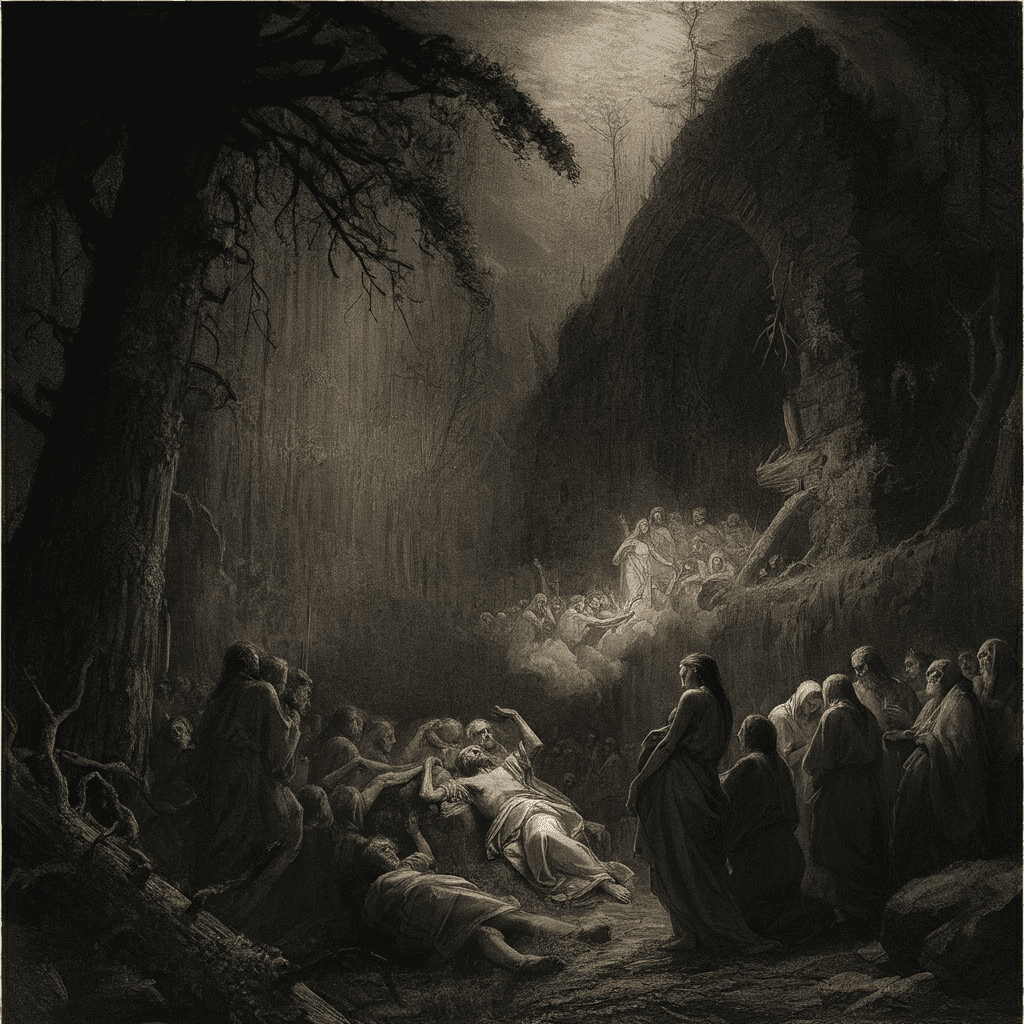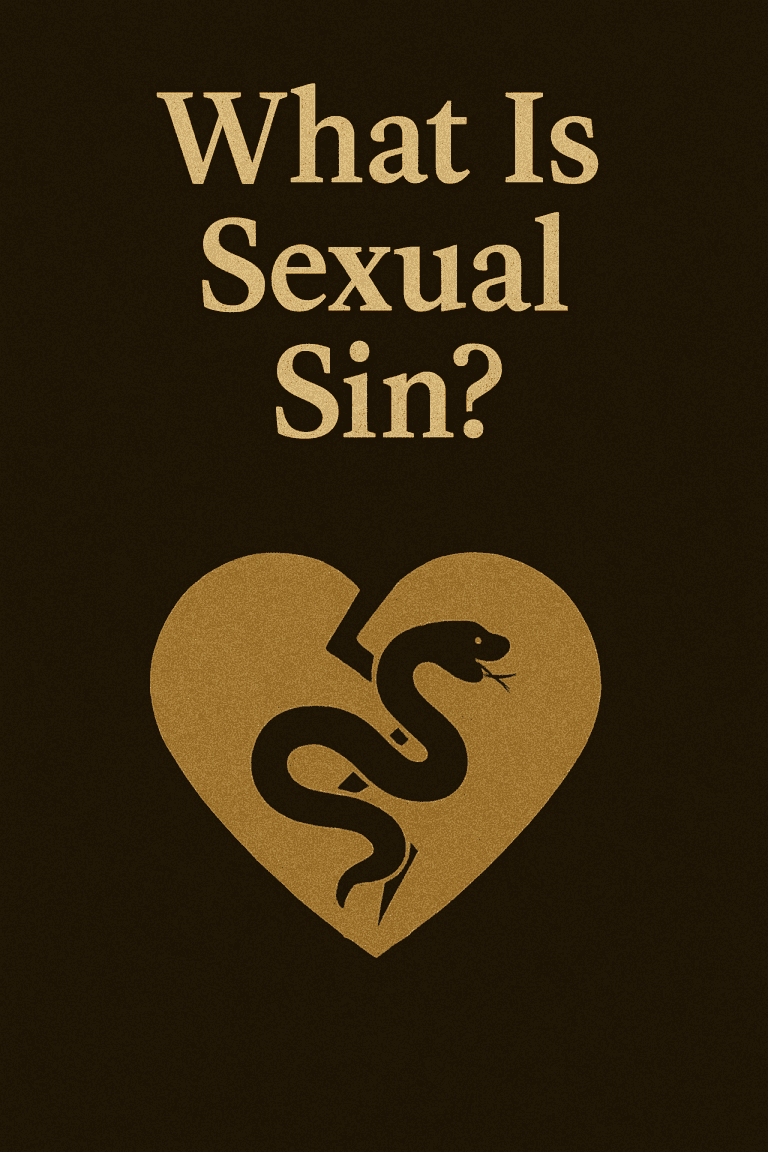What Is Purgatory? A Biblical Response to a Catholic Doctrine
If you grew up Catholic, you may have been taught that when you die, you don’t necessarily go straight to heaven or hell. There’s another stop along the way—purgatory—a place where souls are “purified” before they can enter God’s presence.

But here’s the real question: Is purgatory biblical? Because at the end of the day, it doesn’t matter what tradition teaches—it matters what God’s Word says. So let’s dig in and see what Scripture actually says about this doctrine.
Where Did the Idea of Purgatory Come From?
Purgatory isn’t something the apostles taught. You won’t find Peter, Paul, or John talking about it in the Bible. Instead, the idea developed hundreds of years later in church history.
The Roman Catholic Church teaches that purgatory is a temporary place where believers are cleansed from sins before entering heaven. The idea is that while Jesus’ death forgives eternal punishment, Christians still need to suffer for temporary consequences of their sins. This teaching largely comes from:
- 2 Maccabees 12:46 – A passage from the Apocrypha (books that were never part of the Jewish Scriptures or accepted by Jesus and the apostles).
- Writings of early church fathers – Some post-apostolic writers speculated about an intermediate state where sins could be “purged.”
- Church traditions and councils – By the time of the Middle Ages, the doctrine had become official church teaching, reinforced by the selling of indulgences (which led to the Protestant Reformation).
But none of that establishes biblical truth. The real question is: What does the Bible actually teach about what happens after death?
What Does the Bible Say About Life After Death?
The Bible is crystal clear—there are only two destinations after death: heaven or hell. No middle ground. No second chances. No “waiting room” where sins get burned away.
- Believers go straight to be with the Lord
- Paul says to be absent from the body is to be present with the Lord (2 Corinthians 5:8).
- Jesus told the thief on the cross, “Today you will be with me in paradise” (Luke 23:43). No mention of purification—just grace.
- Philippians 1:23 – Paul desires to depart and be with Christ, not go to a holding place.
- Unbelievers face immediate judgment
- Hebrews 9:27 – “It is appointed for man to die once, and after that comes judgment.”
- Luke 16:22-23 – The rich man dies and immediately finds himself in torment in Hades.
No purgatory. No second chances. Just final destinations.
Do Catholics Use the Bible to Defend Purgatory?
Yes. But let’s examine their arguments carefully, because much of their defense of purgatory depends on books that were never part of the Hebrew Bible or the canon accepted by Jesus and the apostles (Jesus quoted directly from the Old Testament).
Catholics and some other groups use a version of the Bible that includes extra books, commonly known as the Apocrypha or Deuterocanonical books. These books were written between the Old and New Testament periods, and while they may contain historical accounts or Jewish traditions, they were never recognized as Scripture by the Jewish people—the very people God entrusted to preserve His Word (Romans 3:2).
Here’s the key issue: Jesus and the apostles never quoted from the Apocrypha as Scripture. While they frequently quoted from the Old Testament (Genesis through Malachi), there is no record of Jesus or His disciples ever referring to the Apocryphal books as authoritative. The Jewish people themselves rejected these writings as divinely inspired, and the early church fathers debated their status. It wasn’t until the 1500s, during the Council of Trent, that the Roman Catholic Church officially declared them part of the canon—in response to the Protestant Reformation.
So when Catholics point to 2 Maccabees 12:46, which speaks of prayers for the dead, they are basing their argument on a book that was never part of the original inspired Scriptures.
Let’s break down their main arguments and see if they hold up to biblical scrutiny.
1. 1 Corinthians 3:11-15 – “Saved through fire”
Catholics argue that Paul’s mention of believers’ works being “tested by fire” (v. 15) is proof of purgatory. But is it?
Look carefully. The context is about rewards, not salvation. Paul is talking about believers whose works (not their souls) will be tested at the Judgment Seat of Christ. This is about rewards lost, not sins being purged. It has nothing to do with suffering in the afterlife.
2. Matthew 12:32 – “Not forgiven in this age or the next”
Some argue that Jesus’ words about blasphemy against the Holy Spirit not being forgiven in this age or the age to come (Matt. 12:32) imply that some sins can be forgiven after death.
But this is not what Jesus is saying. This passage simply emphasizes that blasphemy against the Spirit will never be forgiven, period. It doesn’t teach that other sins can be forgiven after death.
3. 2 Maccabees 12:46 – Prayers for the dead
This verse speaks of praying for the dead—something Catholics use to justify purgatory. The problem?
- 2 Maccabees is not Scripture. It’s part of the Apocrypha, which was never recognized as inspired by Jesus or the apostles.
- Nowhere does the Bible teach believers to pray for the dead.
If a doctrine relies on extra-biblical sources, it’s not from God.
What’s the Real Problem with Purgatory?
Purgatory doesn’t just add a little extra teaching to Christianity. It undermines the gospel in three major ways:
- It denies that Christ’s work is finished.
- Jesus said on the cross: “It is finished” (John 19:30).
- Hebrews 10:14 – “For by a single offering He has perfected for all time those who are being sanctified.”
- If Jesus fully paid for sin, why would anyone need further purification?
- It adds works to salvation.
- Ephesians 2:8-9 – Salvation is by grace alone, through faith alone—not of works.
- If purgatory is needed to finish the process, then salvation isn’t really by grace—it’s by suffering.
- It gives false hope of a second chance.
- If people believe they have a way to “work off” sin after death, they may delay repentance.
- But the Bible warns that today is the day of salvation (2 Corinthians 6:2).
So, What Happens When You Die?
If you have trusted in Christ alone for salvation, your eternity is secure in Him. The moment you take your last breath, you will be in His presence.
If you reject Christ, there is no purgatory—only judgment.
The Catholic teaching of purgatory offers false hope, but the gospel offers assurance:
- Christ has already paid your debt (Colossians 2:13-14).
- You are washed, sanctified, and justified in Him (1 Corinthians 6:11).
- There is no condemnation for those in Christ Jesus (Romans 8:1).
Purgatory? No thanks. Give me Jesus. His work is enough.
Final Thoughts
If you’ve grown up believing in purgatory, I encourage you—go to the Bible, not tradition. Search the Scriptures. See if what you were taught lines up with the finished work of Christ.
And if you’re trusting in anything other than Jesus to make you right with God, today is the day to put your faith in Him alone. He is the way, the truth, and the life—no purgatory required.
Blessings in Christ,
Wally
Questions? Reach out. I’d love to talk more.
Would you like to know more about the biblical doctrine of election and predestination? Read my free pamphlet Chosen by Grace.
Walt Roderick is a Christian writer who cares more about biblical clarity than online applause. He writes to strengthen believers and confront spiritual drift.






